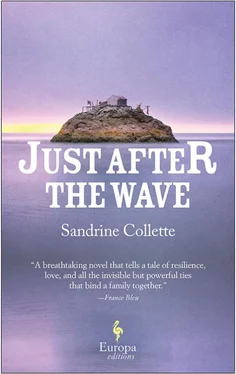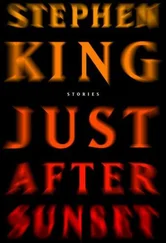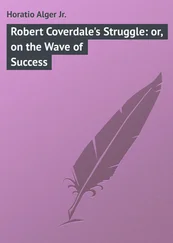“Is it cold?” asks Noah.
“Of course.”
The little boy touches the ashes.
A bit further along, the sea has scattered pieces of wood; they nudge against the shore.
“Look,” says Perrine.
Boards. They go closer and Noah leans down to pick one up.
“Is it the boat?”
Without a word, they study the broken plank, and reach for a few other laths and lengths of wood.
“It looks like it,” nods Louie.
“We were lucky, then,” murmurs Perrine.
They don’t add anything: they prefer to believe it. That the boat was shipwrecked: it’s a consolation. They feel almost happy, suddenly. And so, silently to themselves, they decide that yes, the boat capsized the day before, once it had sailed past their island. They even hope that everyone on board died: it is Noah who says this. Louie puts his hands on his hips, watching the sea.
“For sure they’re dead. They all drowned.”
He doesn’t add, Serves them right . But the faint smile in their eyes indicates there’s no need to say it.
They don’t think about the fact that this is cruel. When your parents abandon you, you have every right. And it really does cheer them up, they run to the house, laughing, because they’re hungry again—not the kind of hunger that wracks your belly because there’s so much you’ve been missing, but a proper hunger, voracious and joyful, which makes them grab one pancake after another from the plate, smearing them with honey and jam, swallowing the whole lot with that sensation of power; they are alive, the three of them, the only ones who are alive, without a doubt, and they are celebrating. In the end they open a bottle of soda and the bubbles sting their noses.
* * *
The heat catches them unawares: by ten o’clock, they’re sweating, the excitement has passed, boredom is already catching up with them. When Noah opens his mouth, Louie raises a finger in warning.
“If you say, ‘What are we going to do,’ I’ll wallop you.”
Noah stands there, mouth agape. Then he closes it.
“Yes, but—”
“Did you hear me?”
So the little boy keeps silent. He wanders off in the house, from room to room, opening doors and closing them again noisily, to the last one.
“Can I open this one?”
“Why shouldn’t you?” says Louie, exasperated.
“It’s the one to the stairs.”
“So?”
“Well, there’s the sea down there, isn’t there?”
“Not all the way up.”
“Are you sure?”
“Just have a look.”
Noah decides to laugh it off: I’m scared. Louie glances at Perrine, mocking. Walks over.
“Okay, let’s check it out.”
He puts his hand on the door handle. Noah is standing a few yards behind him, leaning forward to see. They haven’t opened it for days, this door leading to the basement, doomed by the rising sea. Last time, they were in water up to their ankles, it felt strange to be walking on flooded tiles.
“Are you coming?”
Noah hesitates. Wipes his hand cautiously over the walls.
“There’s no light.”
“There’s been no electricity since the storm,” Louie reminds him.
They go slowly down the steps. Very quickly their feet are in water.
“It’s risen,” says Louie, stopping when he’s in up to his knees.
“Have we reached the bottom of the stairs?”
“Not yet.”
“Look, over there, the fishing rods. They’re not far.”
Louie reaches for them, hands them to his little brother behind him.
“Here, we can go fishing.”
“Are we going to keep going down?”
“I don’t think so. We’ll be in up to our waists, and besides there’s nothing left down here.”
The bottom of the house is dark and wet, it smells of things rotting—old furniture, cloth, carpets. Louie can make out objects floating, caught prisoner in the room; a dull fear overcomes him, that the sea might rise all of a sudden, and they’ll be trapped inside. So he stays on the stairs, clinging to the banister. Noah wrinkles his nose.
“It’s kinda gross.”
“Yeah.”
“Do you think the sea will go all the way upstairs?”
“I don’t know.”
“What will we do if it does?”
“I don’t know.”
“Will we drown?”
“Why don’t we go fishing?” says Louie, to shut Noah up, so that the fear around his throat will finally loosen its grip.
And so, heedless of the sun and the heat, the three of them go down to the shore. They have dug for worms in the earth and put them in a bucket which they keep in the shade of a tall hazel bush. Motionless and silent—Louie has forbidden them from speaking, so as not to scare the fish away, and, in the beginning, they manage not to—they wait, casting their lines again when they think they can detect the movement of a fish here or there. The first hour they don’t catch anything, and nearly give up—it’s the fault of the heat, which rouses those damn flies and puts the fish to sleep. Exasperated, Noah changes his worms every ten minutes: They don’t like those ones. The fish start biting at around noon, at the same time as the wind rises. Perrine pulls in a bass, or at least that’s what they suppose it is, because it could be some other species the sea has brought up from the depths. Louie removes the hook and pounds the creature’s head on a stone to kill it. Perrine proudly holds her fish at arm’s length before putting it in the basket. It’s a nice one, isn’t it?
They catch a second, then a third, then they have four.
“We’ll eat them tonight!” exclaims Noah.
Perrine scratches her ear, puzzled: she doesn’t know how to cook them. The scales vaguely remind her of the hen they tried to pluck—pray the scales will come off easily, or that they can leave them on. She doesn’t want to have to cut the fish up.
Or maybe they should skewer them, on the barbecue?
The waves lap at the shore, the sky has turned gray again. They observe the clouds. Initially they pay no attention, just enjoying the refreshing cooler air; then the wind begins to swirl around them.
“There’s going to be a storm,” murmurs Louie.
The others nod, to them this is obvious: in the three weeks since the tidal wave engulfed the earth, there has been one storm after another. And it’s not that Louie has noticed anything in particular about the vibrations in the air or the way the wind is turning: he has said this instinctively, because the sea is getting choppy and the blazing sun has misted over, he says it and maybe there won’t be any storm at all, he simply says it because there could be. But Perrine looks at him as if it were certain.
“A real storm?”
So he nods his head to seem important, his expression solemn.
“I think so.”
She is worried.
“Should we stop?”
But Noah wants to go on, the wind in their sweat-sticky hair calms them. Louie studies the horizon. Five more minutes. Then we go back. He is giving them a wide margin: Noah is always clumsy at putting away his fishing rod, the line gets tangled, he jabs himself with the hook. A few months ago he got it lodged in his cheek. He has had a clear little mark under his eye since that day, a scar that won’t go away, where the skin grew back thinner—the little boy was damned lucky, half an inch higher and he would have lost his eye.
And they’ll have to carry the basket with their heavy catch, Louie doesn’t want to run, to be heading back through gusts of wind and rain that wrench the door from their hands. He says it again, sniffing the air. Five minutes. Noah lets out a cry: the line has gone taut. The last one! cries Louie, hurrying over. He brings the fishing net closer while Noah gives some slack, tightens, lets go. Perrine exclaims, watches the sky, then the fish, the sky again, she moves further back on the shore while the horizon fills with black clouds, she blinks suddenly, a raindrop.
Читать дальше












